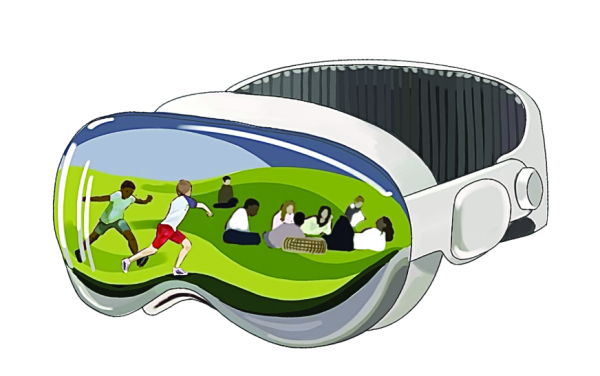Metaverse’s Big Bang
November 18, 2021
Seemingly tired of its global reputation as a cheap, unethical fast food chain, McDonald’s sought change in 2014. The company expanded its menu and developed more environmentally-conscious practices for sourcing its meat. Over the next decade, a number of businesses did the same — Uber, Nike and Weight Watchers changed their branding and morals for the better.
Facebook co-founder and CEO Mark Zuckerberg announced Oct. 28 that Facebook and its services Instagram and WhatsApp will become part of the new corporate brand “Meta.” The company is marketed as a shift towards building the Metaverse, a large media platform that will allow users to connect with one another through a virtual and augmented reality environment.
Any new company’s future should be filled with optimism and opportunity, but Facebook recently faced controversy over its impact on mental health and American democracy. Its legacy has rightfully tainted Meta’s barely two-week-old existence.
In early October, Facebook whistleblower and former data scientist Frances Haugen testified before a Senate subcommittee that Facebook knowingly spread misinformation and exploited users to increase growth and profit, according to NPR. Haugen’s legal team filed eight complaints alleging that Facebook executives misrepresented important details about the company’s potential to cause harm to users.
Haugen also argued that the company negatively impacted the 2020 election cycle and the mental health of its younger, more vulnerable users. The New York Times said Facebook comments presenting incorrect information were found at the tops of comment threads. Inaccuracies spread far and wide—posts declaring that the election was fraudulent accounted for 10% of views of political content on the platform.
In addition, leaked Facebook studies show that 32% of teenage girls said Instagram worsened their body image, according to the Wall Street Journal. When asked about the effect of their company on children’s mental health, Haugen said Facebook consistently refused to tell the full truth.
Zuckerberg’s response? To defend Facebook adamantly. Zuckerberg dismissed Haugen’s accusations, writing in a Facebook post that Haugen had helped paint a “false picture” of the company and that he was proud of “everything we do.”
Instead of changing Facebook’s policies, committing to more ethical treatment of users or swallowing his pride and apologizing, Zuckerberg expanded his company and the scope of its problems.
Haugen’s testimony exposed only a fraction of the threats social media corporations pose to our society. TikTok, Instagram, Twitter, YouTube, Snapchat, Facebook and others have contributed to issues ranging from depression to body dysmorphia in teenage girls, the BBC reported. People who use social media platforms the most are three times more likely to develop depression and anxiety, and social media makes half of its users feel inadequate, according to studies by Computers in Human Behavior, and Scope.
As a 16-year-old girl myself, I am no stranger to the negative impact these platforms have inflicted upon my life, and I know my friends and millions of other teenagers feel similarly. Scrolling through photos of expertly photoshopped models each day detrimentally affects my friends’ and my self-esteem.
Zuckerberg cannot hide in fear from the consequences of his powerful online world forever, and shifting towards an even larger platform is hardly a solution. If dozens of smaller companies already have an outsized influence, then building a platform as massive as the Metaverse seems unnecessary and dangerous to our democracy and collective mental health.
We have learned, though, that Zuckerberg can hardly be stopped. If he intends to proceed with Meta and the Metaverse, he must change what is not working about the policies and safety measures of his company before implementing them on a larger scale.
Ultimately, we can hardly feel surprised by Zuckerberg’s choice. He came under attack in our current society, so in typical tech billionaire fashion, he took his abundant resources and resolved to invent a new technological world centered around his ideas.
Thankfully, we can see right through its flaws.






































